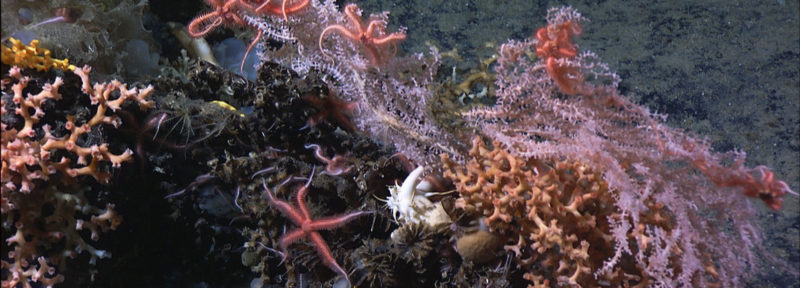Oceans North Applauds Inclusion of Ocean-Based Solutions in New Federal Plan to Reduce Emissions
OTTAWA—Earlier today, the federal government announced a new plan to tackle emissions as part of its legislated commitment to reach net zero by 2050. The 2030 Emissions Reduction Plan – Canada’s Next Steps for Clean Air and a Strong Economy contains several acknowledgements of the connection between healthy oceans and a healthy climate, including the importance of Indigenous-led marine conservation and reducing emissions from the shipping sector.
“Managing and protecting our oceans can help secure a positive climate future—likewise, reducing emissions will help protect our oceans,” says Brent Dancey, the director of marine climate action at Oceans North. Oceans sequester over 80 percent of the world’s carbon—about 20 times more than plants and soils—and have absorbed more than 90 percent of the excess heat from global warming over the past five decades.
However, excess carbon and heat are taking their toll on the health of the ocean: there is more acidity, less oxygen and more extreme marine heatwaves. At the poles, ice is melting as temperatures reach new records. At the same time, emissions from ocean industries such as shipping are poised to increase, despite the urgent need to decarbonize the economy.
Today’s announcement marks welcome news as Canada moves to combat these trends by addressing ocean and climate holistically. As part of the plan, the government will map and further protect stores of “blue carbon,” including working in partnership with Indigenous peoples. The plan also mentions the important role that clean fuels such as hydrogen will play in hard-to-abate sectors like shipping, and the urgent need for demonstration projects that can pilot the use of zero-emissions fuels and technologies. Regular progress updates built into the plan provide an extra layer of accountability. However, the plan does not explicitly include a target for the implementation of zero-emission marine vessels, nor does it directly mention emissions from other ocean-based industries such as fisheries and the importance of eliminating fuel subsidies.
“As we work together to reach net-zero emissions by 2050, it’s more important than ever that climate impacts are factored into how we manage our oceans and ocean-based industries,” Dancey says. “We’re heartened to see the government acknowledging this connection, and hope that the same perspective is applied to the Blue Economy Strategy and Canada’s next commitment to the Paris Agreement.”
For more information, please contact:
Alex Tesar
Communications Specialist
[email protected]




